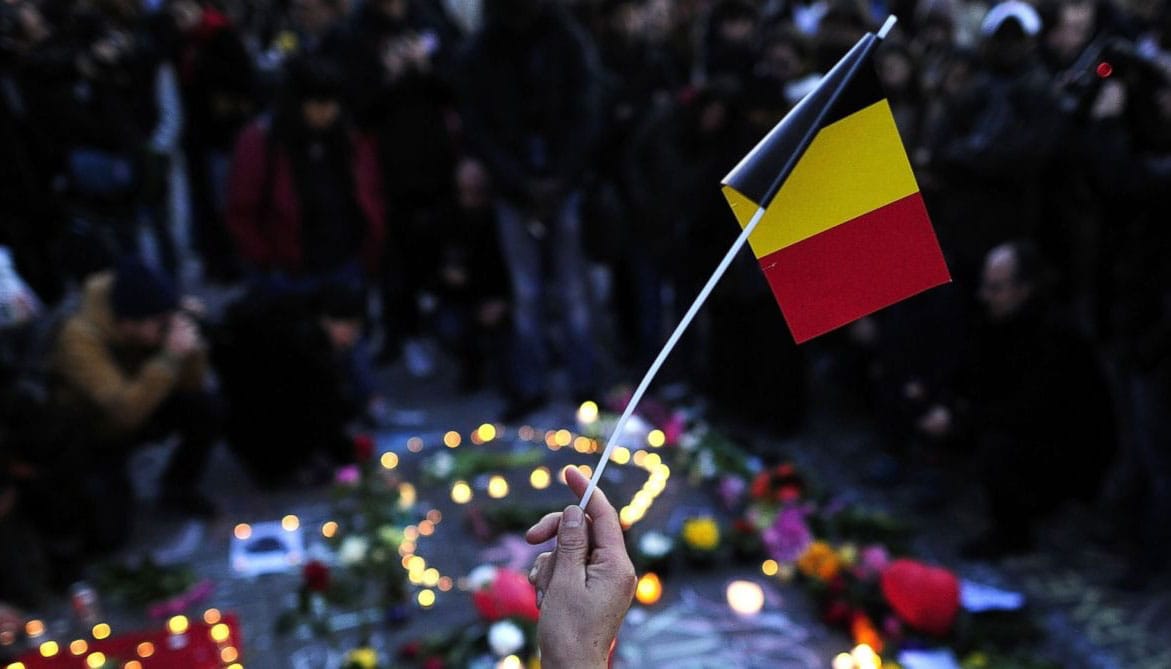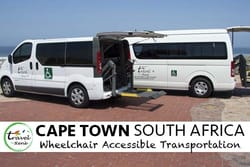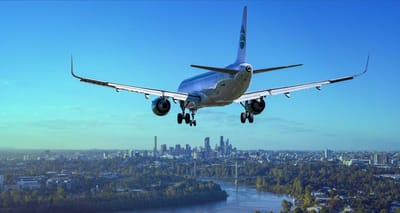It is becoming clear that terror could show its horrible face at any moment. The attacks in the airport and at the Maalbeek metro station in Brussels, Belgium were a personal gut check – my sister and I were there this past January.
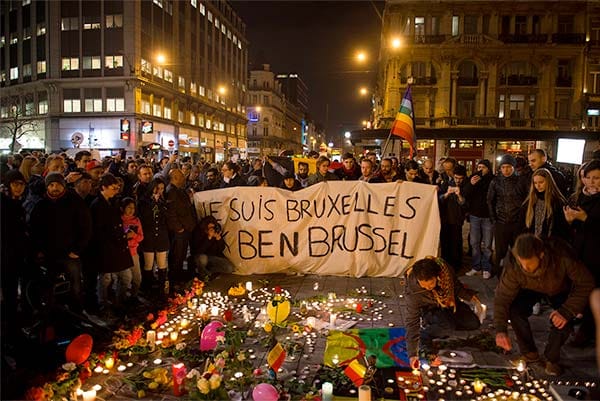
Two of the most respected and revered European cities have been targeted recently – Paris in November, and now Brussels. People who are considering international travel may now take pause. I understand their apprehension, but would encourage them to travel anyway.
Many writers, bloggers and political pundits claim that the terrorists will have won when people change their behavior out of fear. I agree, but I won’t encourage you to travel for the purpose of making a statement to terrorists. That’s noble, sure, but let’s not forget why we travel. For me, it all comes down to love and the beauty of cultures, people, buildings, art, nature, cuisine – in effect, humanity and life. I travel to soak in what this world has to offer, to experience life, and to encounter every aspect of God’s magnificent creation.
In this article, I want to help you put the threat of terror in perspective. I won’t question your fear, but I will try to help you overcome it. I also want to equip you with some tools to help you protect yourself abroad. I will try to keep it all under a thousand words, and I’m already at… 240.
Terror isn’t confined to religious extremism.
The ISIS members (and sympathizers) who carried out the attacks in Brussels, Paris, San Bernardino and Boston were all terrorists. While they all shared similarities in background and motivation, they aren’t the only terrorists the world has seen.
I don’t care who you are or what you look like, if you bring about a situation that terrifies me, you are a terrorist. Holding up a convenience store while I’m inside? Terrorist. Pointing a gun at me and my friends in an alley to steal our wallets? Terrorist. Shooting up a medical clinic because you disagree with the services they provide? Terrorist.
The people who can hurt, kill or terrorize you don’t all look the same. Don’t cling to a false sense of security just because you’re surrounded by people who look like you.
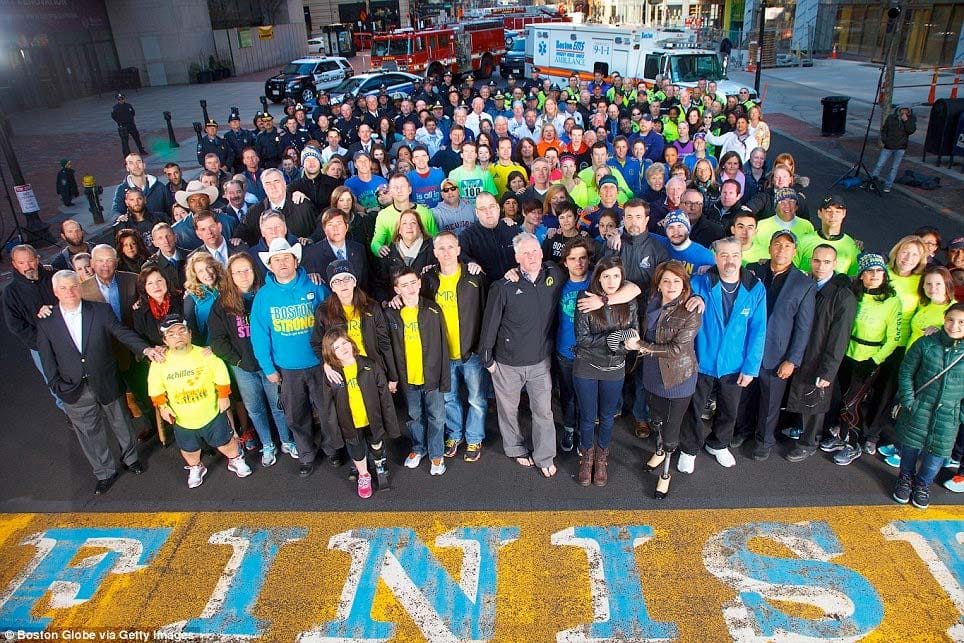
Your fear is rational, but…
Contrary to popular belief, our hometowns aren’t immune from terror attacks. Terrorists can strike anywhere. Did the residents of San Bernardino expect extremists to go on a shooting spree in their own city? What about the victims of the Boston Marathon? The answer is: probably not. Everyone has access to the internet, and people are remotely indoctrinated by all manner of extremist groups. The guy a few floors up, or a few blocks down the street, could become the next mass shooter. Be vigilant – everywhere.
Don’t look the other way.
If you’re suspicious of someone or something, report it. Many of the terrorist attacks which have claimed innocent lives could have been prevented if people had recognized and reported the suspicious activity of those responsible.
The world would be a better place if people spoke up when they encounter injustice. This applies to both big things and small. If you see a man abusing a woman on the street (or vice-versa), confront that person, or notify someone who can. If you witness a shoplifter in the act, report them to a store employee. We can create a better world if we take responsibility for ourselves and others by speaking up.
Pick up the phone. Call the police. See my FAQ article, Emergency Response Telephone Numbers In Other Countries.
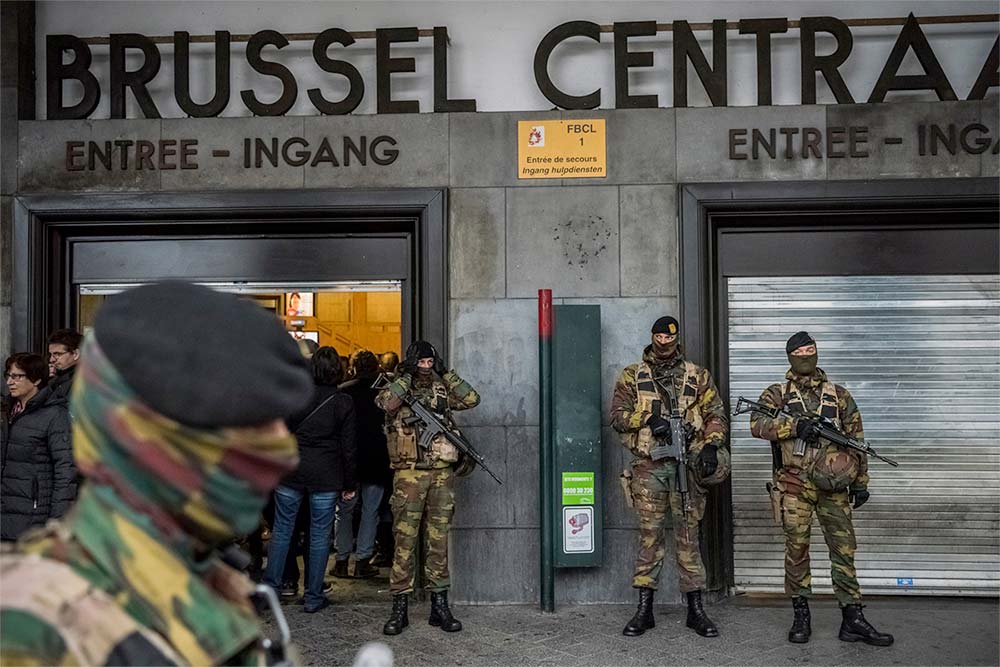
After an attack, there are unique challenges for disabled travelers.
In Brussels, the attack led authorities to shut down the airport, public transportation system, and all trains leaving the city. The French and German governments closed their borders with Belgium. Tourists were, at least for a time, stuck. Such a scenario has the potential to be extremely challenging for travelers with disabilities, particularly those who use wheelchairs.
Many disabled travelers operate on a shoestring budget. While airlines and rail companies will honor your tickets once services resume, you might incur unexpected costs if forced to extend your trip. While a terror attack is a scenario that could prolong your trip, such attacks are incredibly rare. Missed flights or trains, bad weather, a lost bag or purse, or a health event are scenarios that are much more likely to put you in a tough spot financially. Additional nights at a hotel, taxis instead of public transit, extra food or medicine – all of these circumstances require more money, and they are possibilities on each trip you take.
My biggest tip is to carry a credit card. If you’re traveling and find yourself in a bind, your credit card company could give you a temporary increase of your credit line. The U.S. government also has a program to assist Americans who become destitute while abroad.
Your nation’s Embassy exists to serve you.
One of the most important pieces of information to carry with you while traveling abroad is the location and contact information for your country’s Embassy or Consulate. As an American citizen, I take comfort in knowing that the U.S. Embassy is there to help me, and they will be especially active in the event of a major emergency – like a terrorist attack or natural disaster.
I have thought about this great benefit a lot since Tuesday’s attack, and I’ve started to add information on emergency resources to the Travel Visa Requirements & Safety section of each wheelchair accessible travel guide on the site. Check out the updated page in the Brussels guide.
As I was writing this, I thought about Berlin, Germany, which has no wheelchair accessible taxis. I am confident the U.S. Embassy in Berlin would find some way to help me (or you!) if Berlin were ever to be shut down in the way Brussels has been.
Final Thoughts
Be vigilant and aware. Have a plan. Quiet your fears with knowledge, information and perspective. Above all, cherish the beauty of travel. 1049 words! Oops, I thought I’d make it.
P.S. Check out the article I recently added to the International Travel FAQ section, which I believe is relevant to this topic, and may help you put whatever fears you have in perspective: Is Traveling Outside Of The United States Safe?
Do the potential risks and dangers of travel discourage you?
What strategies do you use to overcome those fears?
Share your answers in the comments below!

